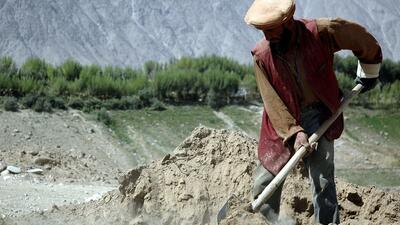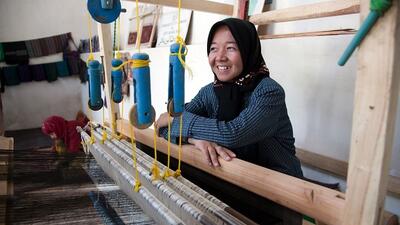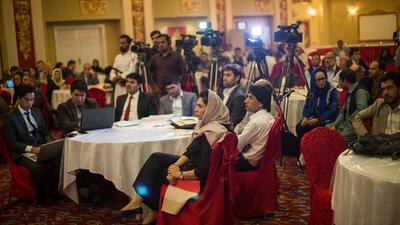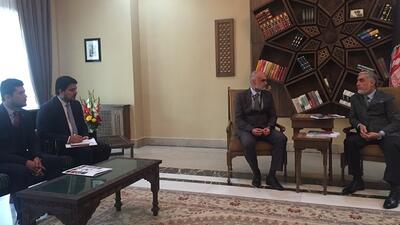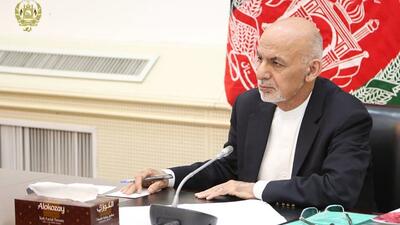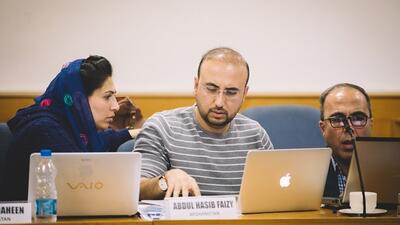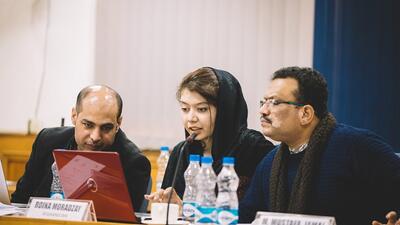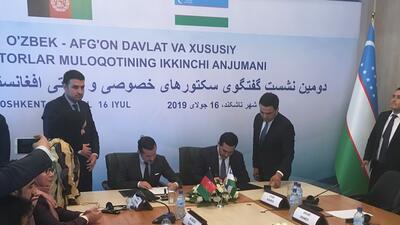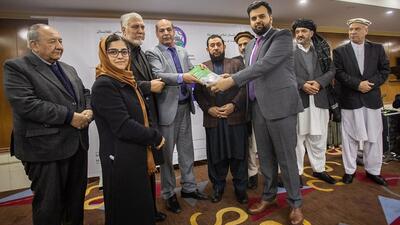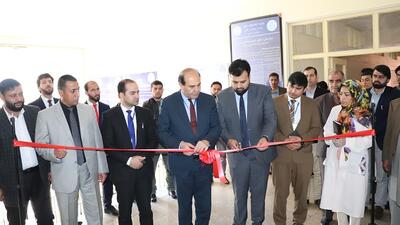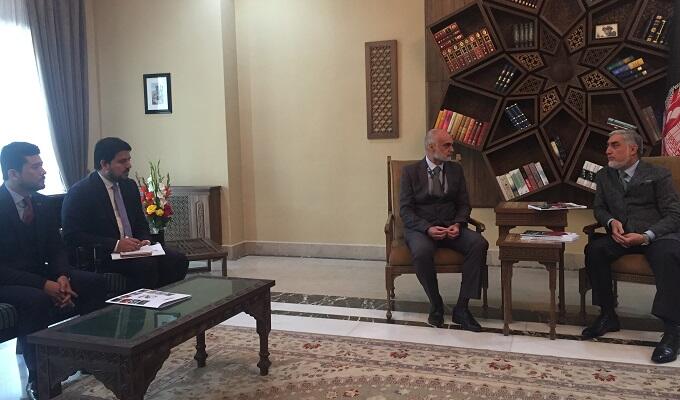
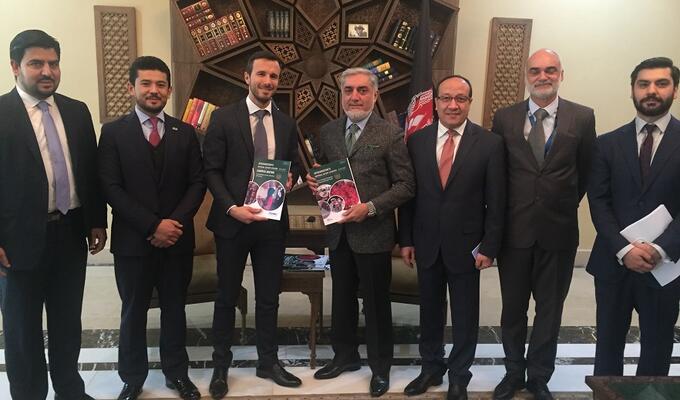
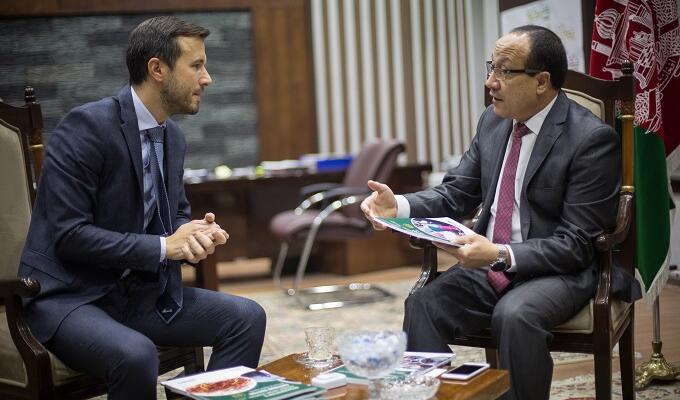
Major strides made towards Afghan export strategy and trade policy
(Kabul) – Afghan government officials and business leaders have advanced two plans that, once finalized, should help the country increase trade – a time-proven method, when applied effectively, for creating jobs and reducing poverty.
The country’s proposed National Export Strategy surmounted two milestones on 27 November when it was presented to the Afghan Council of Ministers and the country’s Executive Committee of Private Sector Priorities, an essential last step prior to the final endorsement by Afghanistan’s High Economic Council.
During the 27 November meetings, which were chaired by Afghanistan’s Chief Executive Dr. Abdullah Abdullah, participants praised the strategy as well designed and participatory, effectively involving elements of government and private business.
The decision follows a meeting on 25 November, during which more than 70 Afghan industry leaders, small business owners, and representatives of the public sector agreed on key objectives intended to increase the country’s exports – part of a five-year plan to be included in Afghanistan’s nascent National Trade Policy.
Both the National Export Strategy and the National Trade Policy are part of Advancing Afghan Trade, a programme funded by the European Union and implemented by the International Trade Centre (ITC).
Mr. Humyoon Rasaw, Afghanistan’s Minister of Commerce and Industries, said: ‘The strategies have been developed with the objective of increasing Afghanistan’s exports and domestic production by promoting a balanced relationship between trade integration and sustainable domestic economic development. They address key policy challenges related to trade and market access facing Afghanistan.’
'I am pleased to see significant progress towards the final adoption of the Afghan National Export Strategy. This momentum echoes the EU's commitment to further contribute to Afghan economic regional integration as highlighted by the recently adopted EU Strategy for Afghanistan. Job creation through economic growth and trade are defining drivers for peace.' said Ambassador Pierre Mayaudon, EU Head of Delegation in Afghanistan
Mr. Atiq Nusrat, Chief Executive Officer of the Afghanistan Chamber of Commerce and Industries (ACCI), which participated extensively in the development of the Export Strategy and Trade Policy, said that the Export Strategy and Trade Policy ‘have been a longstanding necessity for the country…. and they will be very useful and important documents’.
The National Export Strategy sets out clear goals, includes a detailed five-year plan of action, and features a management system that will allow for improved logical teamwork and decision-making. It aims not just to expand trade, but boost the socio-economic development, increase the capacities of the country’s businesses, attract greater investment, and improve the circumstances of Afghan women and youth – all priorities established by the government.
The National Trade Policy, meanwhile, is intended to address trade challenges holistically with its main objective being the better integration of Afghan businesses in regional value chains and in the global economy. The policy recognizes that key to achieving this goal will be to improve thethe competitiveness of Afghanistan’s enterprises.
A key aim of the Trade Policy is a unified, coordinated approach. Participants at the 25 November meeting agreed on policy objectives that could help accelerate exports, including the promotion of market access for Afghan goods and services, rationalizing the country’s tariff policy, increasing the competitiveness of Afghan products, and promoting domestic production.
The recommendations put forward by industry officials and small business owners on steps needed to make such progress will be incorporated into the final version of the policy, which must also be approved by the High Economic Council.
Eric Buchot, an ITC senior officer, said that the National Export Strategy, thanks to the support of the European Union, already accommodates budgeting for the implementation of critical pilot activities that have been identified and developed through the design process. This will ensure that impact and momentum are generated from early on, which will help strengthen confidence.
Mr. Rajesh Aggarwal, ITC’s Chief of Trade Facilitation and Policy for Business, said the National Trade Policy provides a ‘road map’ through which the country’s Ministry of Commerce and Industries can lead broad-based government and private sector progress.
Notes for the Editor
Background
The EU-funded Advancing Afghan Trade project is implemented by ITC under the leadership of the Ministry of Commerce and Industries. It is a response to the Afghan government’s ongoing efforts to use trade as a driver of economic growth, regional cooperation and stability.
Afghanistan acceded to the World Trade Organization in July 2016, after which it immediately moved to ratify the global trade body’s Trade Facilitation Agreement.
To ensure sustainability, local ownership and long-term impact of the project, ITC will be working with a range of partners from the private sector, academia and civil society organizations based in Afghanistan.
For further information about the Advancing Afghan Trade project, please visit:
http://www.intracen.org/AAT/
About ITC
The International Trade Centre is the joint agency of the World Trade Organization and the United Nations. ITC assists small and medium-sized enterprises in developing and transition economies to become more competitive in global markets, thereby contributing to sustainable economic development within the frameworks of the Aid-for-Trade agenda and the United Nations’ Sustainable Development Goals.
For more information, visit www.intracen.org | twitter.com/ITCnews | facebook.com/InternationalTradeCentre | linkedin.com/company/international-trade-centre
For more information, please contact:
International Trade Centre
Jarle Hetland
Media Officer
Office of the Executive Director
P: + 41 22 730 0145
M: + 41 79 582 9180
E: hetland [at] intracen.org (hetland[at]intracen[dot]org)
To read the translated version in Dari, please click on the link.




